Hypertrophic Cardiomyopathy Treatment in Israel
Hypertrophic cardiomyopathy (also called asymmetric septal hypertrophy) is a fairly common condition which occurs as a result of the thickening of the ventricles’ walls due to enlargement of heart muscle cells. It is diagnosed when the ventricles’ walls’ width exceeds 1.5 cm.
Treatment Program
If you have been diagnosed with HCM in your country of residence, we advise that you travel to Israel for hypertrophic cardiomyopathy treatment. The cost of the program will depend on whether conservative or operative treatment is indicated. If the condition has been diagnosed in a timely manner it can be managed with medication.
While the medical documents you provide will help, you will need you to undergo an echoCG and cardiologist exam in Israel before a treatment protocol can be drafted. If operative intervention is required, the procedure of choice is septal myectomy. This is an open-heart surgery that takes approximately 3 to 5 hours and is considered low risk (even more so than CABG procedures) when performed by an experienced surgeon like the ones we work with. Assuta Medical Center is one of just two facilities worldwide renowned for this kind of operation (the other is located in Cleveland).
Diagnosis
- Stress echocardiography
- Cardiologist exam
- Preoperative preparation (routine blood work up, chest X-ray and an anesthesiologist consultation)
- Cardiac surgeon exam
Surgical Hypertrophic Cardiomyopathy Treatment
Price includes:
- Operative procedure and up to 7 days of hospitalization at a semi-private room
- Disposable surgical materials and equipment
You will be hospitalized in an ICU for 1 or 2 days following the surgery and then for 4 or 5 additional days in a cardiology ward.
You will be required to remain in Israel for 2 additional weeks following your discharge from the hospital. During that time you can stay at a hotel and visit your treating cardiologist for periodic check-ups.
Postoperative Rehabilitation
Rehabilitation takes between 4 and 8 weeks. Normally, you will be able to start driving a car again and experience a major improvement in your quality of life just 3 weeks following your hypertrophic cardiomyopathy treatment!
Symptoms & Causes
HCM is most often inherited. However, hypertension, diabetes and thyroid disease have also been associated with an elevated risk of developing the condition. The most often seen symptoms are chest pain, shortness of breath, spells of dizziness and fainting. As HCM may lead to reduced blood flow from the ventricles, cause mitral valve pathologies, or lead to heart failure, if you experience the aforementioned symptoms, you should seek hypertrophic cardiomyopathy treatment as soon as possible.

